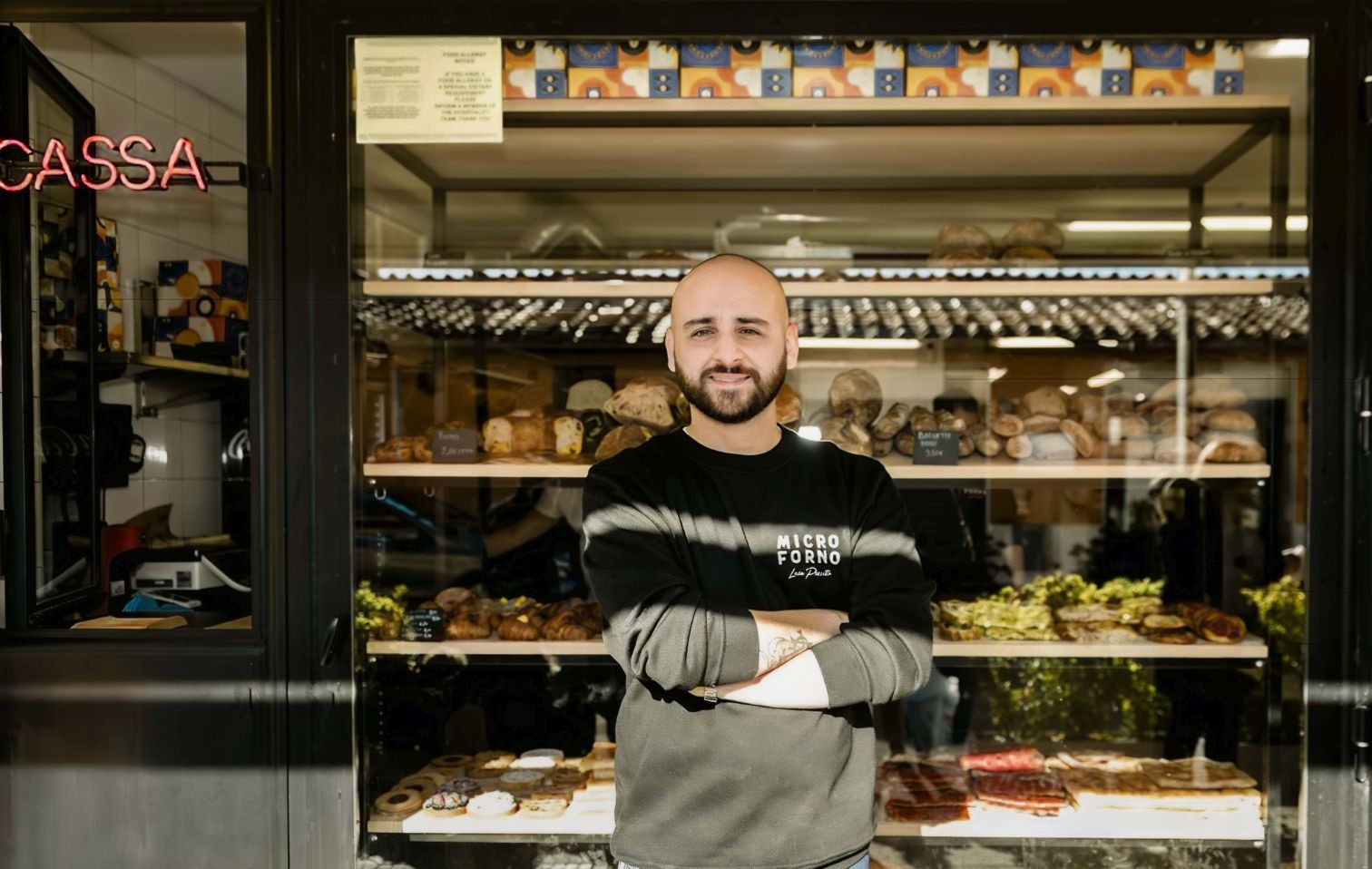Dynamic Luca Pezzetta doesn't just bake excellent Roman-style pizzas. On December 7th, he opened his micro bakery in Fiumicino, with a window facing the production lab open to others. An innovative concept with multiple advantages.
The idea
The firstborn was Clementina, a Roman pizzeria opened two years ago in Fiumicino, now a food district that competes for the top spot with Senigallia. Now, from the dynamic Luca Pezzetta, the micro bakery and the bakery and kitchen lab are practically arriving all at once, both for himself and for colleagues, located in Via Giovanni Battista Grassi. It will produce fresh bread, grissini, toast, brioche, and bread loaves for restaurants and hotels. In the future, it will also offer pizza bases with custom recipes, seafood stocks, and sea salami, presenting itself as a solution for those facing space or personnel shortages.
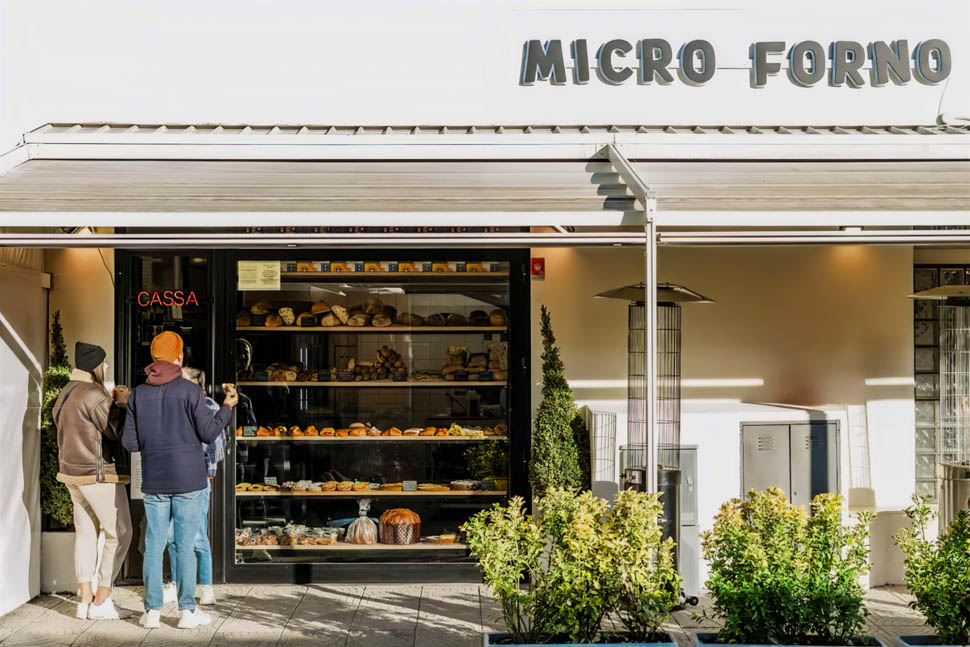
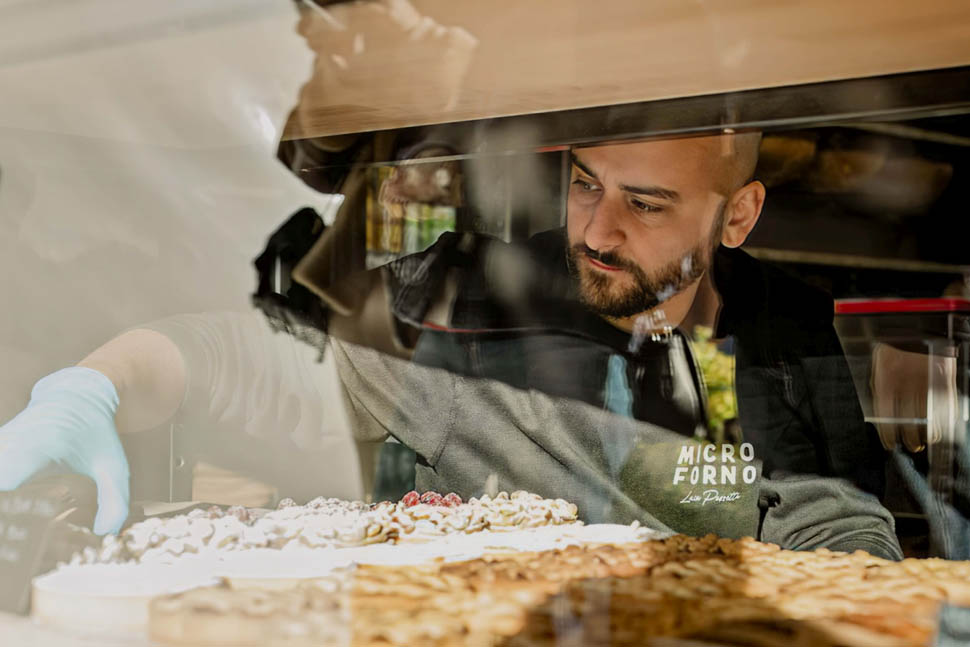
The Micro Forno (micro bakery), on the other hand, opens a six-shelf display and a window for direct purchasing from the production lab onto the street. It is basically a bakery on wheels, from which you can take away bread, viennoiserie, traditional sweets, dry pastries, seasonal panettone, and even delicious mini pizzas at night. But Pezzetta doesn't stop there, and for February, he is already preparing Clementino, his high-quality fast-food spot, featuring a focacceria and a fryer with super-selected raw materials.
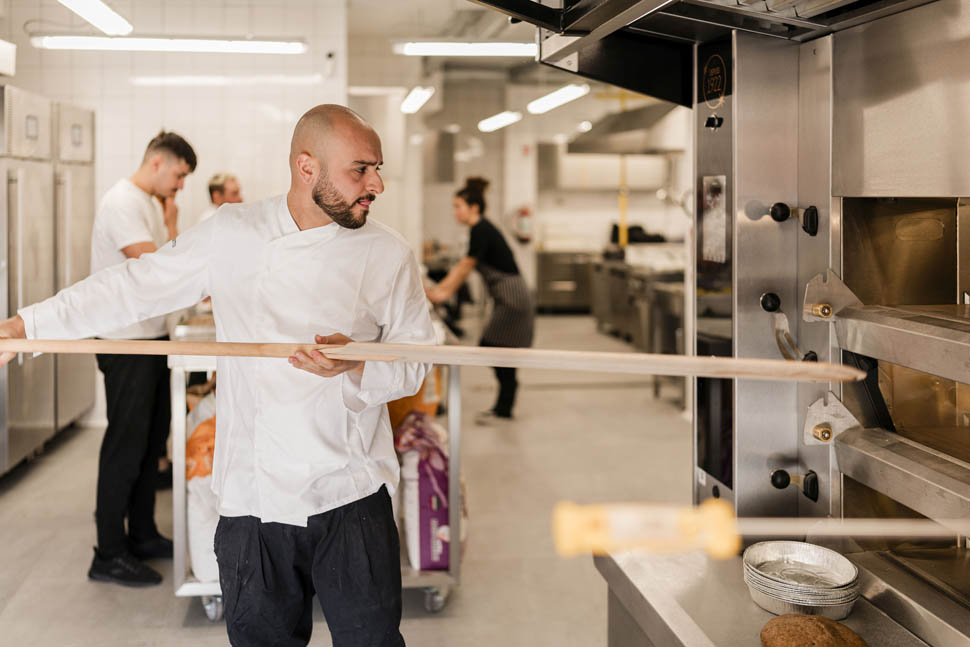
Luca, how did you get here?
Coming from a family of restaurateurs in the Castelli Romani, I've been involved since childhood, deciding early on to attend hotel school. Originally aspiring to be a pizzaiolo like my grandfather Goffredo in the '50s, a special client, Gabriele Bonci, invited me to work with him. This experience deepened my passion, leading me to specialize in baking. I revamped our family restaurant, Il Bersagliere, and in 2016, I opened my establishments with Birra del Borgo, gaining recognition and awards. I founded a consulting company working with Italian and international pizzerias and started teaching in various academies. Two years ago, I inaugurated Clementina, a Roman pizzeria in Fiumicino, my hometown, where the theme revolves around the sea. Now, as an entrepreneur, I've expanded with the lab and the micro bakery on the street.
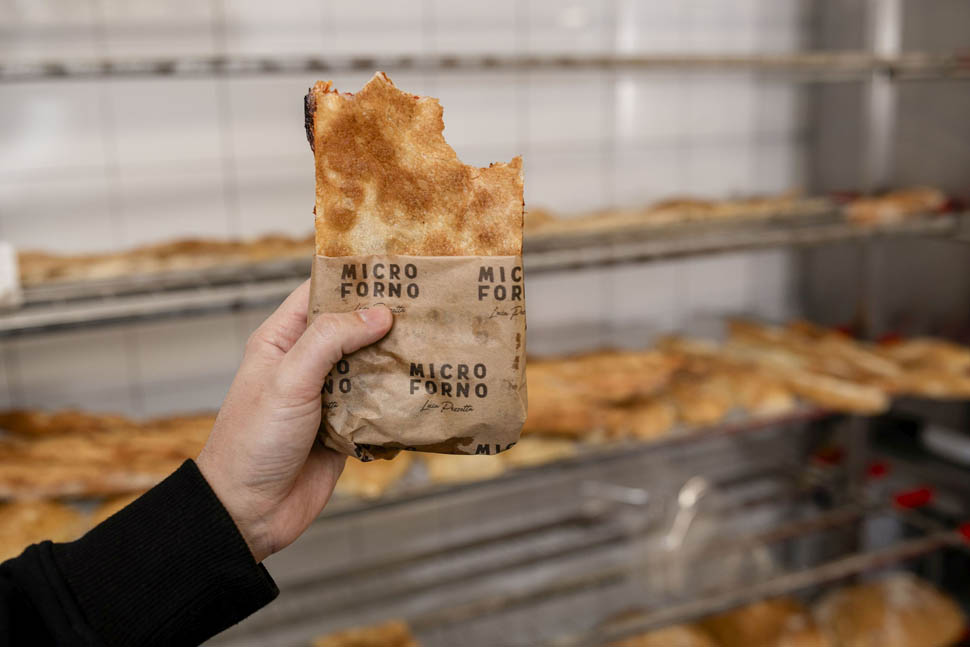
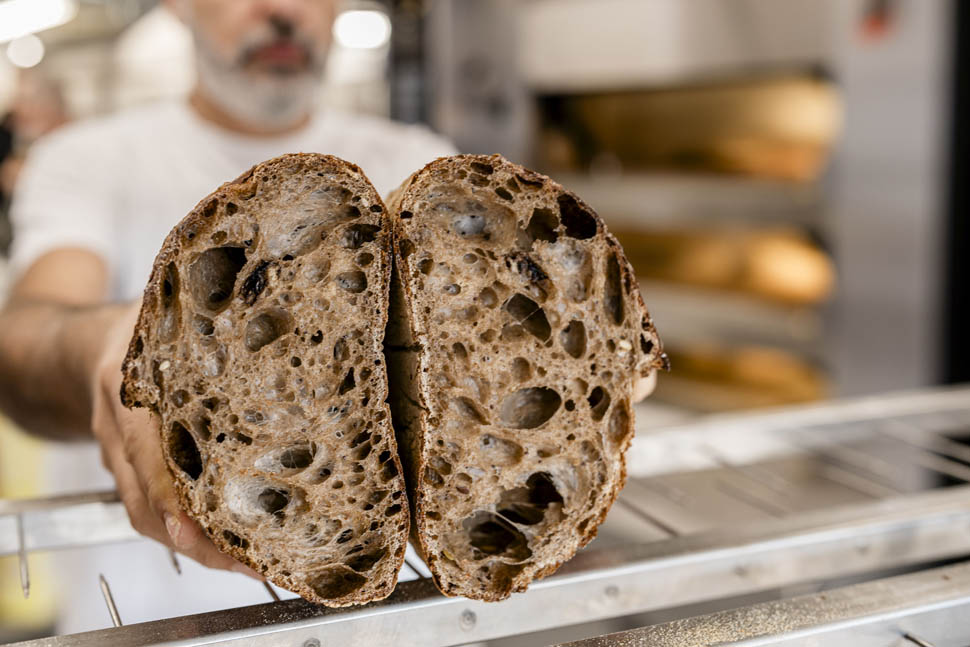
It seems to be an innovative concept
I am honest; I saw it for the first time in Ukraine, where I was working before the war. There was this mill that had a window to sell bread and flour, and I wanted to replicate it. I think it's a useful trick to bypass many issues related to bureaucracy and the Local Health Authority because getting compliant can be almost impossible. But if the activity is retail, and not serving, everything becomes simpler. The idea is to open other micro-bakeries around the core laboratory in different cities, but not immediately. For a year and a half, I want to behave. I won't use the cold chain, only the modified atmosphere. Not so much for the bread, as it doesn't need it, given that it naturally leavens and has a quite long shelf life, but for products like croissants, leavened items, biscuits, and pizza bases. This year, I also won the contract with the airport duty-free shops, where our panettone is already on sale.
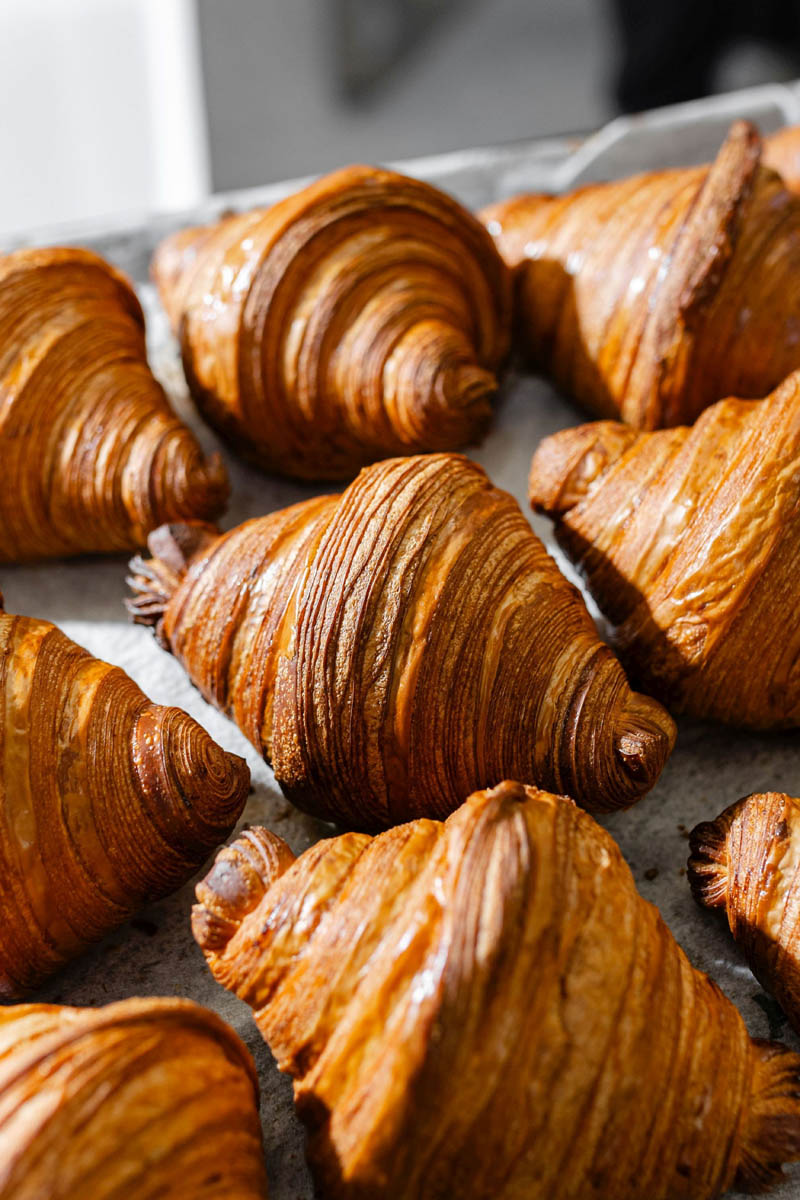
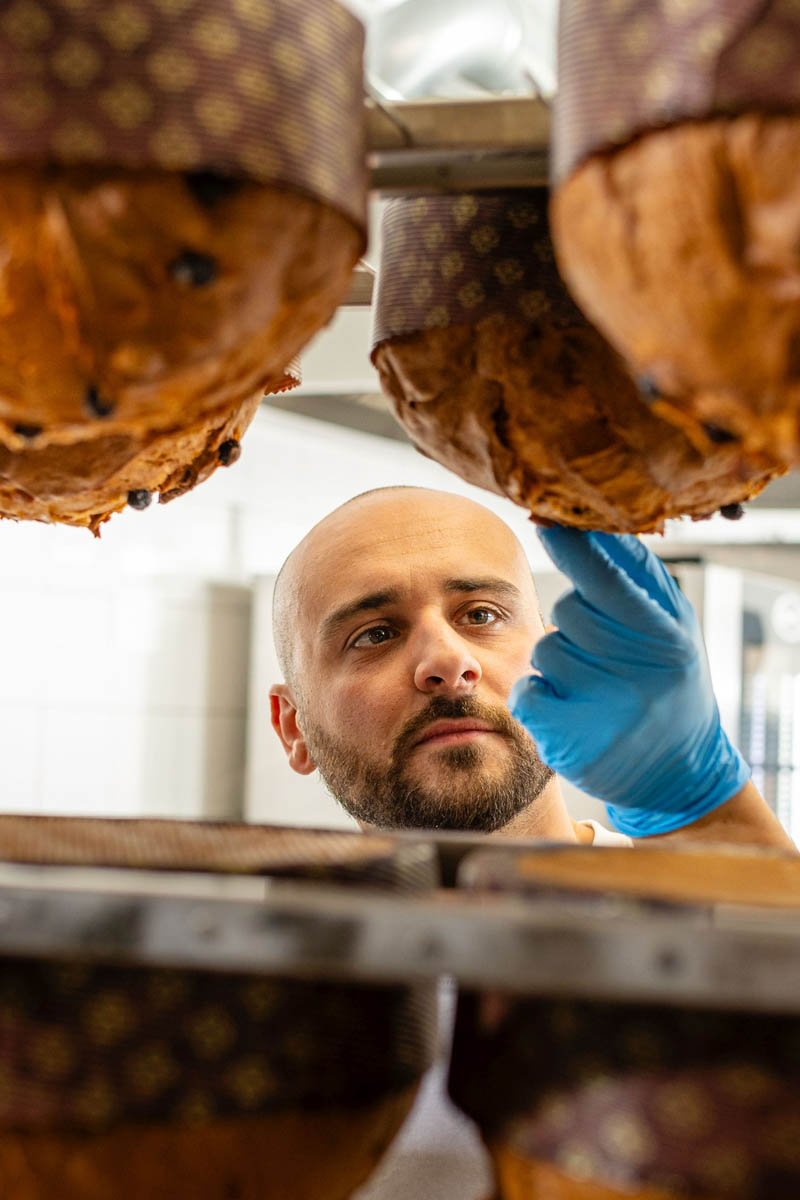
What advantages does the confluence of these activities offer?
The goal is to train staff and reduce mistakes, addressing the challenge of finding skilled labor today. Clementina employs 22 people, and the lab, currently focused on baking, has about ten. Standardizing products that come from the same hands ensures quality. Additionally, there's the advantage of storage. With large cold storage facilities, I can optimize production times. Tasks that were daily chores due to space constraints can now be done periodically in larger volumes. The rest of the lab, dedicated to cuisine, will kick off in January and merge with the seafood fast-food, which should also be capable of replication. Because I invested in a brazier and equipment for significant volumes, while Clementino will only have activation machinery, similar to McDonald's. This wouldn't be sustainable with just one location.
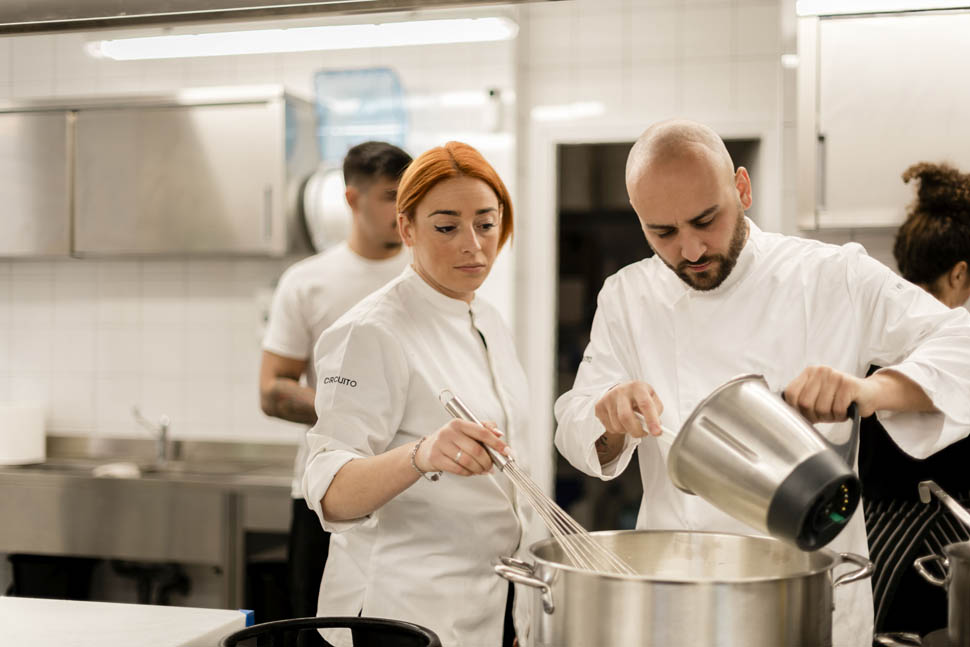
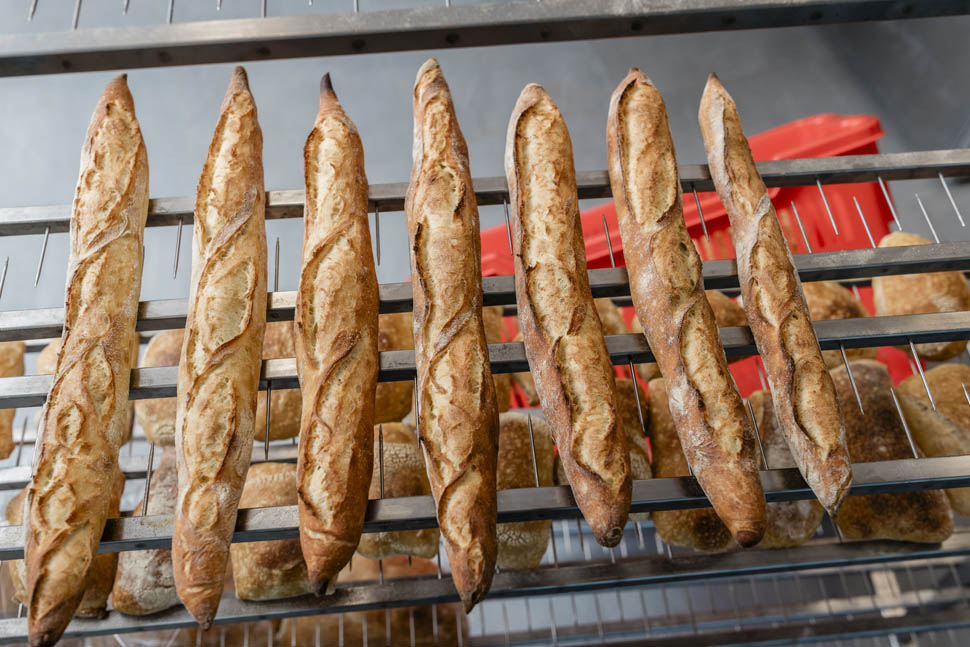
Can quality and quantity coexist?
I am convinced that by increasing the volumes, the products can remain artisanal. Since I started selling my panettone at the airport, many customers ask me if it has changed. But if I produce 200 instead of 20, it can improve because I have more purchasing power with suppliers and can invest in packaging. We are making 2000 panettones per week, but each piece must undergo quality control before packaging; if there is a defect, we sell it sliced or keep it for ourselves. The dividing line between artisanal and industrial is drawn by humans who feel the dough and yeast, unlike complete mechanization and the use of preservatives.
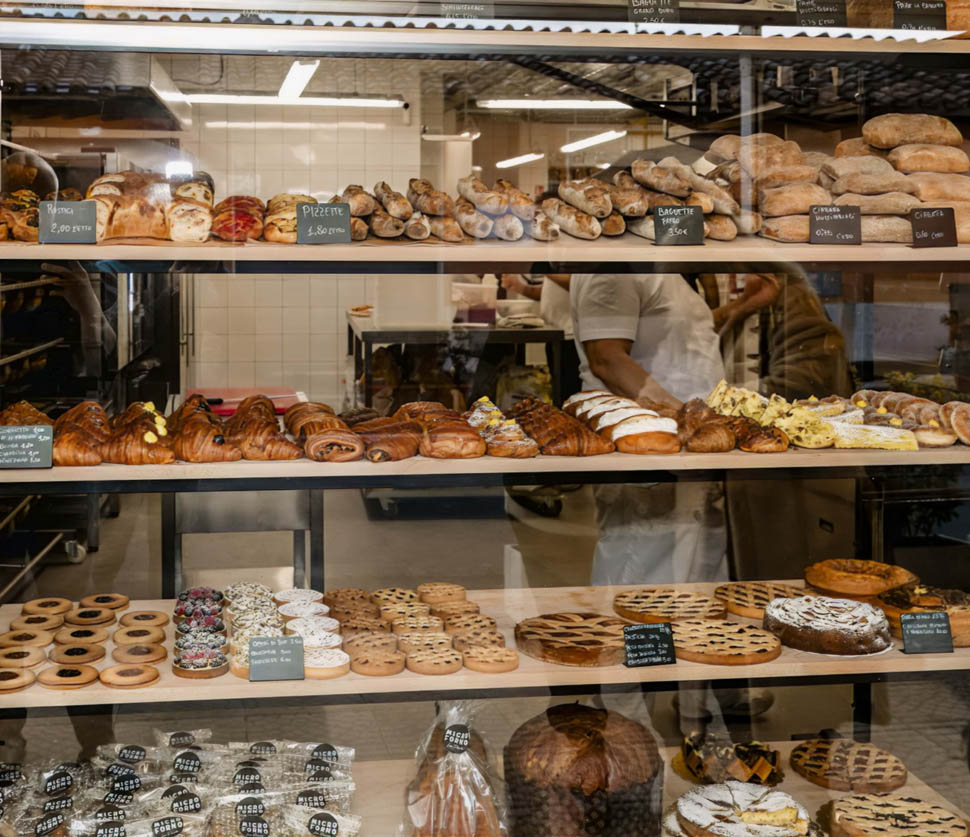
Fiumicino has become a fully-fledged gastronomic district
I'm part of the Periferia Iodata association, along with Marco Claroni, Lele Usai, Gianfranco Pascucci. We advocate for promoting a territory rich in raw materials, from fish auctions to Maccarese fields and almond groves. These initiatives align with the movement's spirit.
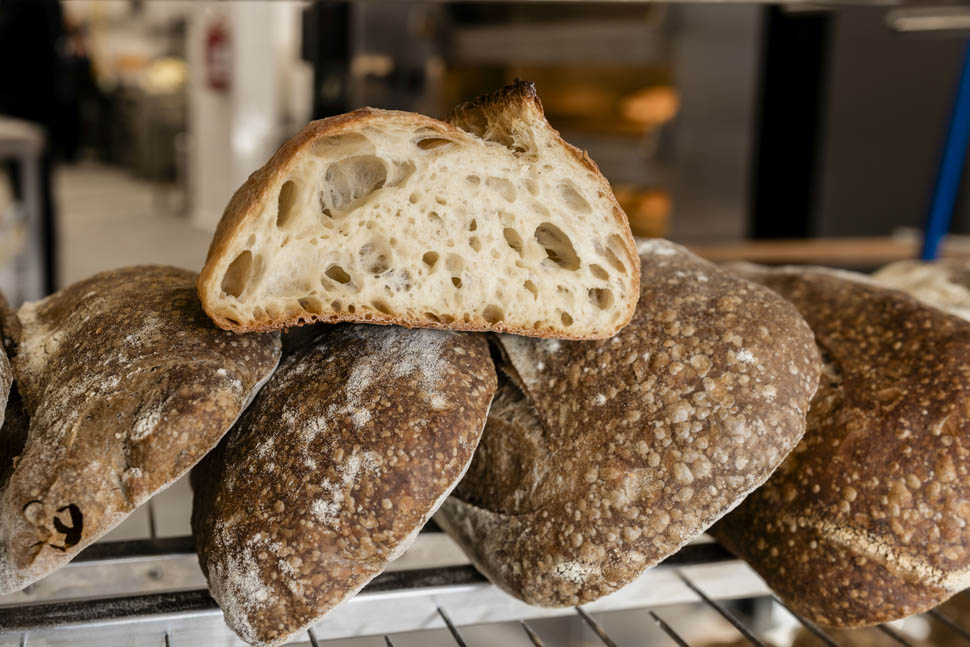
Contact
MICRO FORNO Luca Pezzetta
Via Giovanni Battista Grassi, 22- Fiumicino (RM)
Open Tuesday to Saturday, 07:00 to 6:00pm and 12:30am to 7:00am for pizzas and croissants
Open Sunday, 7:00am to 6:00pm
Closed on Monday
Online Shop for Artisanal Panettone
